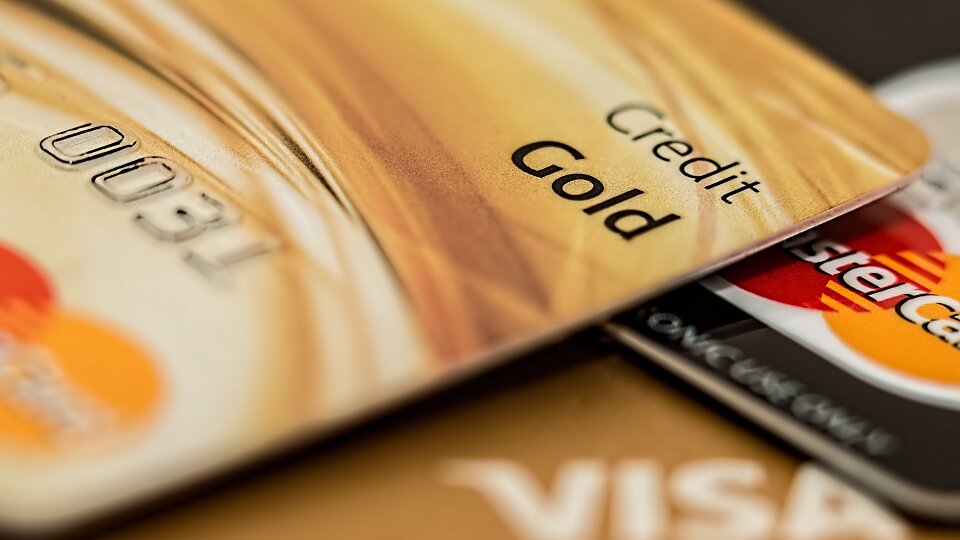When Dreams Become Nightmares

During the next few weeks on the blog, I’ll be sharing excerpts from the revised edition of Enough. This week, I include a portion of the first chapter, “When Dreams Become Nightmares.” Click here to read my previous post from the book’s introduction. Several years ago the Royal Bank of Scotland sent an offer for a Gold MasterCard to Monty Slater. The card came with a $20,000 credit limit—quite impressive for his first credit card, particularly when you consider that Monty is a Shih Tzu dog. Raymond, his owner, thought about using the card for some of Monty’s favorite treats but reconsidered, recognizing that his pup was not in a position to pay the balance when it came due—and that might negatively affect Monty’s credit rating! This may be a funny story, but it illustrates a sobering truth: We live in a world that encourages us to live beyond our means. We are enticed to “have it now” and pay for it later, as opposed to saving and being good stewards of our God-given resources. We all are caught in the struggle in one way or another; no one is exempt. What is the American Dream? For most people, the American Dream has to do with a subconscious desire for achieving success and satisfying the desire for material possessions. It is the opportunity to pursue more than what we have, to gain more than what we have, and to meet success. And we tend to measure our success by the stuff that we possess. Alexis de Tocqueville, a political philosopher who came to America in the nineteenth century, made this observation in his book, Democracy in America: [Americans] are extremely eager in the pursuit of immediate material pleasures and are always discontented with the position that they occupy. . . . They think about nothing but ways of changing their lot and bettering it. For people in this frame of mind every new way of getting wealth more quickly, every machine which lessens work, every means of diminishing the cost of production, every invention which makes pleasures easier or greater, seems the most magnificent accomplishment of the human mind…. One usually finds that the love of money is either the chief or a secondary motive at the bottom of everything the Americans do. This gives a family likeness to all their passions and soon makes them wearisome to contemplate. To be sure, we are eager in the pursuit of immediate material pleasures. The love of money and the things money can buy is indeed a primary or secondary motive behind most of what we do. Consuming, acquiring, buying—this is what the American Dream has come to mean. Thus, what is commonly understood as the “American Dream” might more accurately be called the American nightmare. The American Nightmare How did the “American Dream” become a nightmare? To a great extent, it is due to two distinct yet related illnesses that affect us both socially and spiritually. Affluenza The first illness is called affluenza, which is the constant need for more and bigger and better stuff—as well as the effect that this need has on us. Credit-itis This brings us to the second disease that goes along with affluenza: credit-itis. Credit-itis is the opportunity for us to buy now and pay later. Our economy today is built on the concept of credit-itis. Unfortunately, it has exploited our lack of self-discipline and allowed us to feed our affluenza, wreaking havoc in our personal and national finances. The Deeper Problem Within There is a spiritual issue that lies beneath the surface of affluenza and credit-itis. This issue is not new; it has been a part of humanity almost from the beginning. Inside us there is a brokenness; the Bible calls it sin. Our souls were created in the image of God, but they have been distorted. We were meant to desire God, but we have turned that desire toward possessions. We were meant to find our security in God, but we find it in amassing wealth. We were meant to love people, but instead we compete with them. We were meant to enjoy the simple pleasures of life, but we busy our- selves with pursuing money and things. We were meant to be generous and to share with those in need, but we selfishly hoard our resources for ourselves. There is a sin nature within us. So, what is the answer? In the revised edition of Enough, we look at biblical teachings and practical tips related to how we can change our habits, get out of debt, get a handle on our money and possessions, live more simply, and give more generously. But we must acknowledge that the starting point is a healing transformation in our hearts. We need a changed heart, which results in changed desires and a changed sense of our life purpose. And here’s the good news: This is something God specializes in! If you would like to learn more about Enough or the stewardship program or small group study resources based upon it, please click here. (Scroll to the bottom of the page to view the downloadable resources and the promo videos for Enough.)